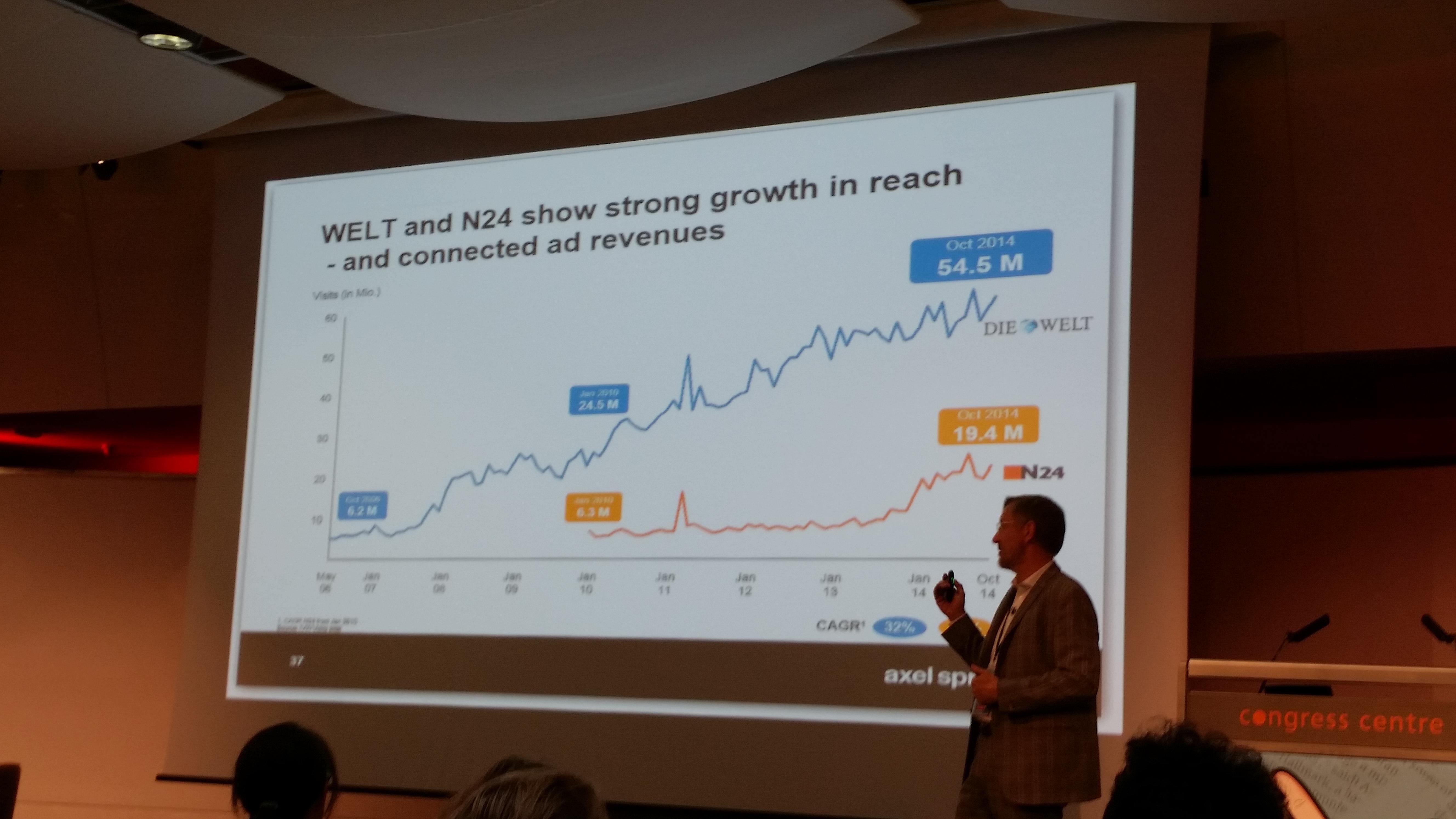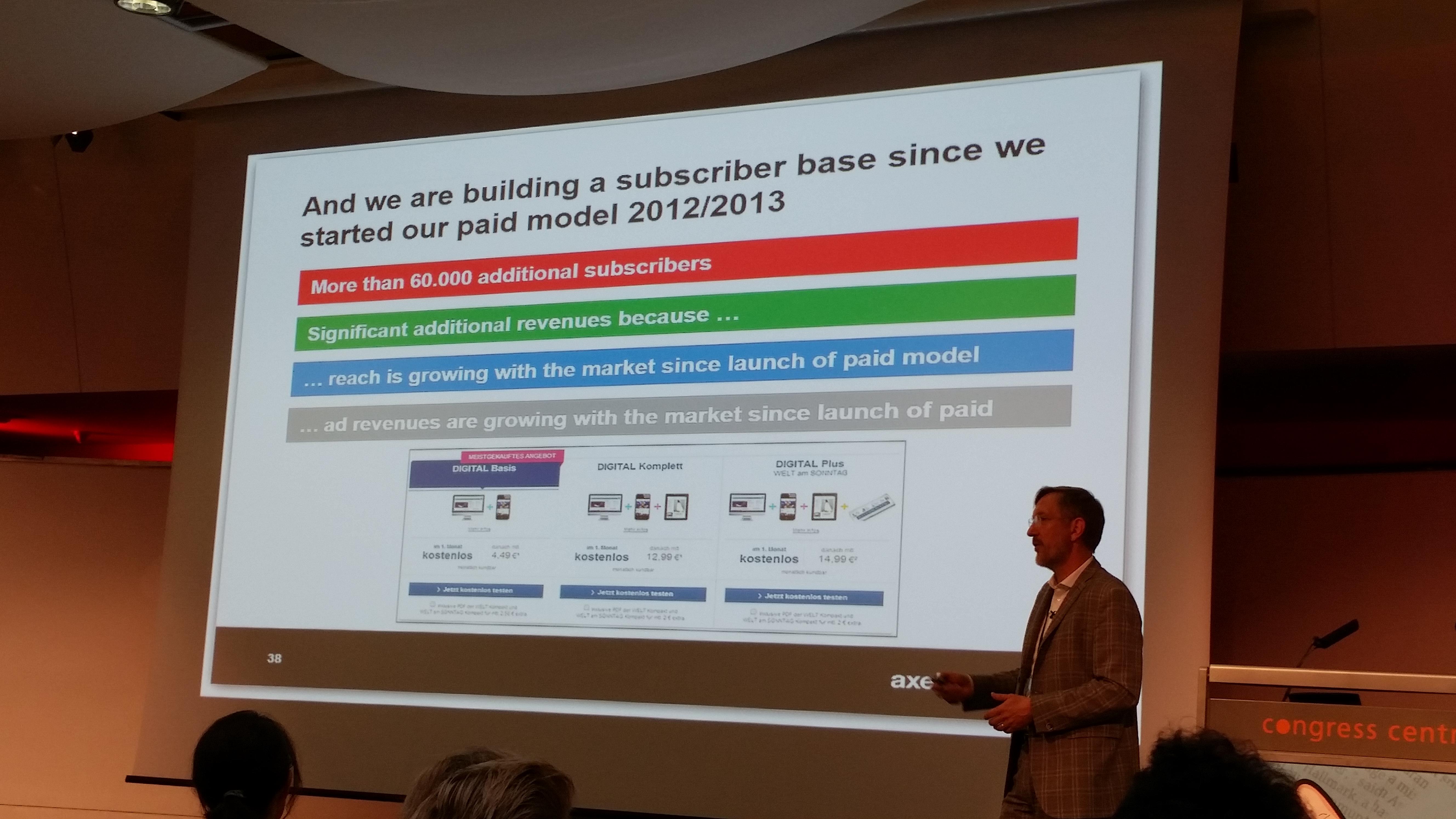How Axel Springer is transforming Die Welt’s business model
Romanus Otte, general manager, digital, at Die Welt told attendees today at The Drum’s Media Slap event in London that although the newspaper is “not really innovative,” it is “fast to adopt new technology and innovation”. Amy Duffin reports.
“We run a multi-platform business, and sometimes it hurts,” said Otte. “We’re not only dealing with print-to-digital transformation, but a technology transformation, too.”
Business models
On the company’s business model, Otte said: “We don’t really have one for the future, but our mission is to find one while we’re making money and delivering value to our audiences and advertisers. We’ve never reached as many people as we’re reaching now.”
Digitisation
Otte discussed “digitisation” saying that only the English-language “offers enough scale for digital products”, and Die Welt’s share here is growing. “We have to do something if we want to survive,” he said. “Digitisation offers a big opportunity – we have gone from the number three newspaper in a shrinking market to becoming a multi-platform publisher by acquiring a TV channel last year (N24 Group). Our strategy brings together a traditional newspaper company and traditional TV company, and we’re trying to figure out how to move forward in today’s world.”

Paid content
One of the first German publishers to implement a paid content model online, Otte said: “I wouldn’t say it’s been a tremendous success, but the results are encouraging. It hasn’t harmed our reach or ad revenues at all.”

Changes in the newsroom
In terms of how Die Welt’s transformation is impacting the newsroom, Otte said that this began in 2006. “We founded an online team with 30-40 journalists, while we still had 400 working on print. We integrated these teams in 2009, but learned quickly that this was a bad idea (digital editors were ‘inhaled’ by print editors) and in 2012 we changed everything again and went ‘digital first’.”
He continued: “We built a new newsroom. Now we have big team of journalists working online, and a small, dedicated team working for print. Maybe it took us too long, but now we’re producing our daily newspaper with 15 people – all our other storytellers are working on digital.”
Although the newspaper has evolved tremendously in the last decade, Otte admitted, “we’re not quite there yet”.
More like this
Paid content models: lessons learned







